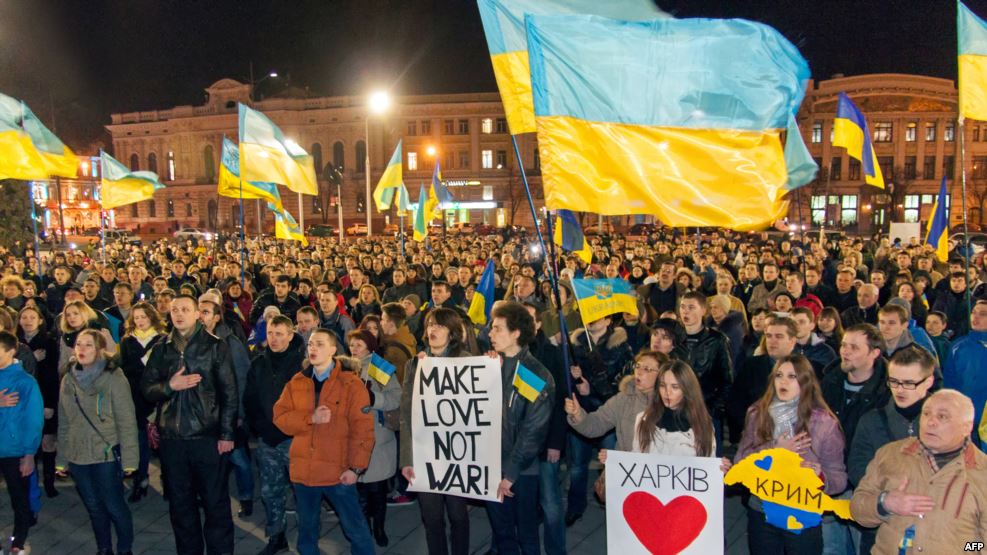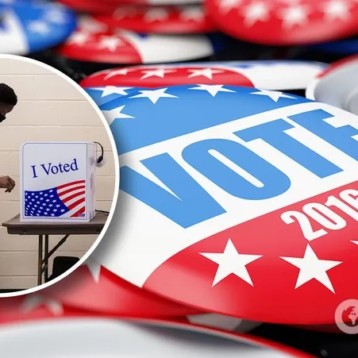In an interview with Radio Azadliq , a Director of the New York-based Eurasia Democracy Initiative explains further: “We are certainly in a very tense situation, with Moscow refusing to back down and keeping its troops in Crimea.”
The three and half-months-old crisis in Ukraine escalated last weekend with Russia’s invasion of its next-door neighbor, according to the US officials. Fortunately, there has been no violence or bloodshed yet, but there is great uncertainty about whether the crisis will escalate into fighting and casualties.
There are also concerns that the fighting may spread beyond the Crimea, “and perhaps even beyond Ukraine,” says Jorge Benitez, Senior Fellow for Transatlantic Security at the Washington-DC based Atlantic Council and editor of the indispensable NATOSource blog.
Putin’s lie…
Speaking to RFE/RL’s Azerbaijani Service, Radio Azadliq, Benitez mentioned that Russian President Vladimir Putin is “using the blatant lie” that he is protecting Russians in Ukraine from ethnic violence. But there is no evidence of any ethnic violence since Euromaidan.
“Putin choose the flimsiest of excuses to justify his attempt to seize parts or all of Ukraine,” he said.
Russia has a long history of being interested in Ukraine. For Benitez, it seems that Putin “was not pleased with the success of the Euromaidan protest movement and Yanukovich’s flight from power.”
The West, he added, wants to prevent the use of force against the people of Ukraine. “It also wants to prevent Putin from keeping his illegally seized control over the Crimea.”
So far, he emphasized, the West is focused on diplomatic and economic options to protect Ukraine and influence Russia to end its military occupation of Crimea.
A pivotal moment…
For Mark Galeotti, a professor at New York University and author of “Russian Security and Paramilitary Forces Since 1991”, the crisis in Ukraine has already reached its “pivotal moment”: Putin has raised the stakes further with the announcement of a Crimean referendum on joining Russia, and it is now up to Kyiv to respond.

Mark Galeotti, professor of Global Affairs at New York University
“Ukraine has political, military, economic and above all emotional value to Russian nationalists such as Putin; if Ukraine swings towards the West, then his hopes of regional hegemony and a Eurasian Customs Union look increasingly threadbare,” he told Radio Azadliq.
From the West’s point of view, he said, the aim is primarily not to sanction brazen military interventionism — after all, if Russia gets away with it in the Crimea, where and who next?
For the analysts, the Crimean crisis has undoubtedly created new tensions between Russia and the West, but in essence this is an old-fashioned geopolitical struggle more like the 19th century.
If Russia intervenes more widely in Ukraine, though, “there will almost certainly be a full Russo-Ukrainian war and one way or the other NATO will not be able to ignore that… There will be no military response, but there will be increasing political and economic measures,” he added.
Intense diplomacy…
Yet, there are so many questions on how Ukraine arrived at this point and how the region will be affect should the crisis escalate further.
In an interview with Radio Azadliq , a Director of the New York-based Eurasia Democracy Initiative explains further.

Peter Zalmayev, Eurasia Democracy Initiative director
Zalmayev: We are certainly in a very tense situation, with Moscow refusing to back down and keeping its troops in Crimea. Yesterday’s talks between US Secretary Kerry and the Russian side pretty much broke down after the Russians refused to meet with Ukraine’s acting foreign minister. Meanwhile, Crimea’s pro-Russian authorities are pressing ahead with the plans to hold a referendum that would ask if the respondents wish that the peninsula became a part of Russia. The one encouraging development is that Russia has called off its troops from the border with Ukraine. There is no military solution to the conflict, all parties involved must engage in intense diplomacy.
Is this the second Cold War?
Radio Azadliq: What will happen if Putin wages war?
Zalmayev: Should Putin decide to extend his theater of operations and allow his troops to cross the border of “mainland” Ukraine, apart from the currently occupied Crimea, it will certainly come dangerously close to a replay of the Cold War. Ukraine’s interim government has made it clear that it would consider Russia’s invasion of the rest of Ukraine’s territory (such as the eastern regions of Kharkiv and Donetsk) an act of war. Considering the significant (though far from total) pro-Russian sentiment in the Russian-speaking parts of Ukraine, Russia’s involvement could also spark a civil war. Such occupation could also turn significant portions of the Russian-speaker areas against their ostensible “protector.”
Radio Azadliq: Would there be international backlash to a Russian incursion?
Zalmayev: There will be a significant backlash from the international community, and especially the West. Everything will be on the table, minus the use of military force: visa restrictions, freezing of bank accounts of Russian oligarchs and businessmen, expulsion from the G8 and the boycott of the summit in Sochi. The only way to counter Russia’s violation of Ukraine’s sovereignty will be in the court of public opinion, as any military involvement could mean the start of a global conflict. So far it appears that the Russian actions in Crimea have received zero support around the world. Russia’s isolation (together with a significant damage to its economy) will only increase should it decide to expand its military operation in Ukraine.

U.K. — US President Barack Obama (L) holds a bilateral meeting with Russian President Vladimir Putin during the G8 summit in Northern Ireland, June 17, 2013
Is Putin Reassembling Soviet Union?
Radio Azadliq: Do you think Putin is seeking to reestablish the Soviet Union or is he just trying to make neighboring states dependent on Russia?
Zalmayev: I do not believe Putin’s goal is to recreate the Soviet Union per se. That is neither possible nor feasible. He is, however, intent on keeping countries of the “near abroad” in Russia’s sphere of influence, guided by Dugin’s ideology of “Eurasianism.” The most important project in this “near-abroad” strategy has been the Customs Union with Belarus and Kazakhstan. Under the terms of Russia’s financial assistance offer to Ukraine signed with Yanukovich, Ukraine would have joined the Customs Union, vindicating Putin’s “Eurasianism” strategy.
How will the Caucasus be affected?
Radio Azadliq: How would you highlight Maydan as an example for other countries, such as Azerbaijan?
Zalmayev: The region’s autocratic rulers have been very visibly concerned with the events on Maidan, Yanukovich’s precipitous downfall and Russia’s subsequent invasion of Crimea. Whether in Uzbekistan, Kazakhstan or Azerbaijan, the situation is unique and Maidan’s scenario is unlikely to be replicated.
In Azerbaijan, flush with income from oil, the President has been able to keep his elites relatively happy by buying them off. It is unclear if popular unrest spearheaded by young disenfranchised pro-democracy activists (as it has been, sporadically, in the recent past) can gather as much steam as on the Maidan. Thus the rulers are even more concerned at the present moment with Putin’s aggression in Ukraine: President Nazarbayev, for one, is fully cognizant of the large presence of ethnic Russians in Kazakhstan’s sparsely populated northern part.
Origin – azadliq.org



You must be logged in to post a comment.